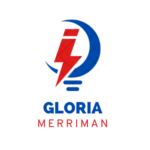The world is at a critical juncture, facing multiple challenges such as climate change, rising energy demands, and the depletion of finite fossil fuel resources. In such a scenario, solar energy emerges as a beacon of hope and a key solution to address these pressing issues. Solar power offers numerous benefits, making it a vital part of our energy mix both now and in the future. In this blog post, we will delve into the reasons why solar energy is important and how it can shape a sustainable future.
Renewable and Clean Energy Source
Solar energy is derived from the sun, an abundant and renewable resource. Unlike fossil fuels, which contribute to greenhouse gas emissions and air pollution, solar power is clean and emits no harmful pollutants. By harnessing the sun’s energy, we can significantly reduce our carbon footprint and combat the adverse effects of climate change.
Energy Independence and Security
With solar energy, individuals and communities can attain energy independence. By generating their own electricity through solar panels, they can reduce reliance on traditional energy sources and decrease vulnerability to price fluctuations in the energy market. Solar power promotes energy security, ensuring a stable and consistent supply of electricity, especially in remote areas and during natural disasters.
Economic Advantages and Job Creation
Investing in solar energy creates numerous economic opportunities. As the cost of solar technology continues to decline, it becomes a financially viable option for both residential and commercial use. Solar panels can help individuals and businesses save on electricity bills over the long term. Moreover, the growth of the solar industry contributes to job creation and economic growth. According to the International Renewable Energy Agency (IRENA), the solar sector employed 3.8 million people globally in 2020, a number projected to increase significantly in the coming years.
Scalability and Accessibility
Solar energy is highly scalable and adaptable to various settings. From small-scale residential installations to large-scale solar farms, solar power can be implemented in diverse contexts. Its accessibility makes it an inclusive solution for communities across the globe, particularly in areas where traditional power infrastructure is inadequate or absent. Solar energy empowers individuals and communities to take control of their energy needs and create a sustainable future.
Environmental Benefits
Solar power offers numerous environmental benefits. By reducing reliance on fossil fuels, solar energy helps mitigate air pollution, lower carbon emissions, and combat global warming. It contributes to the conservation of water resources since solar panels require minimal water for their operation, unlike conventional power plants that consume vast amounts of water for cooling. Additionally, solar installations can repurpose otherwise unused land, promoting land conservation and reducing urban sprawl.
Technological Advancements and Innovation
The solar energy sector has experienced remarkable advancements in technology, efficiency, and storage capabilities. Innovations such as thin-film solar panels, concentrated solar power systems, and solar batteries have improved the efficiency and affordability of solar energy. Ongoing research and development efforts continue to push the boundaries of solar technology, making it an increasingly attractive and competitive option for energy production.
Global Environmental Responsibility
Transitioning to solar energy is not just a matter of national interest; it is a global responsibility. Every country has a role to play in reducing carbon emissions and addressing climate change. Solar energy provides an opportunity for nations to contribute to the global effort to combat climate change. By adopting solar power, countries can reduce their reliance on fossil fuels, enhance energy security, and promote sustainable development.
Conclusion
Solar energy has emerged as a vital component of our energy mix, offering numerous benefits for both the present and the future. From reducing carbon emissions and combatting climate change to promoting energy independence and creating economic opportunities, solar power has the potential to revolutionize the way we generate and consume energy.


 Cart is empty
Cart is empty 






